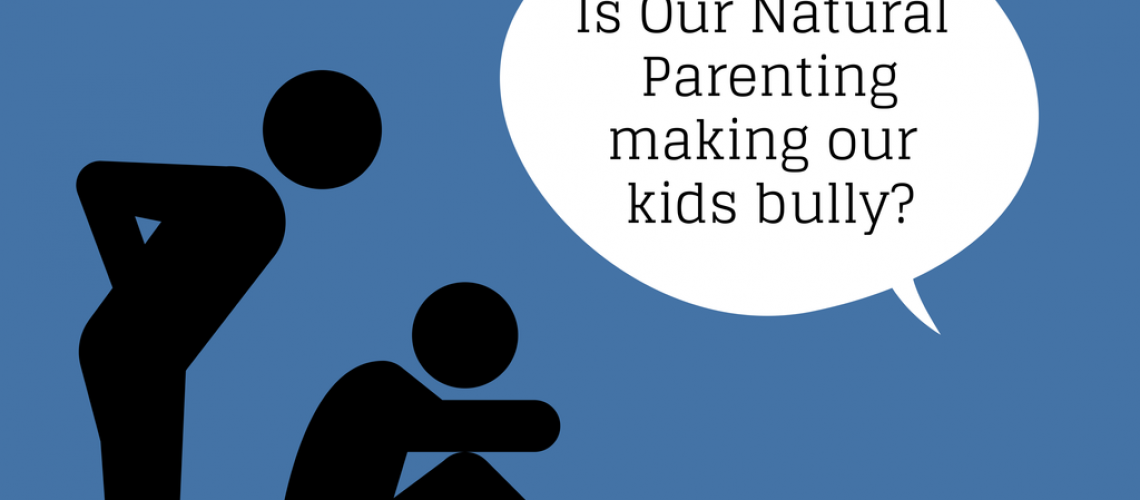Could the natural reaction of parents to their child’s behaviour be making them the bully? Or at the very least preventing them from developing empathy, understanding and the importance of respecting oneself and respecting others? Last week I was lucky enough to have a chat with Dr Justin Coulson, about the research and real life experiences he will be presenting on this topic at this years Alannah and Madeline Foundation’s National Centre Against Bullying Conference.
The general premise looks toward our instinctive reactions and responses to challenging behaviours that Justin believes, may not only be unhealthy, but quite possibly, destructive. When a child misbehaves, whines, throws a tantrum or refuses to cooperate, our natural reaction is to yell, withdraw privileges, sometimes smack or place in time out (or as Justin refers, solitary confinement). In order to get our children to behave a certain way, we take things away, we isolate and we use our power to make them feel inferior. We do these things because we want our child to be well behaved, cooperative, to know right from wrong, to respect boundaries and rules and at the end of the day, to provide us a little peace and quiet. When we parent with this authoritarian rule however, we may just be reiterating the power plays that they then take with them through adolescents and adulthood. The idea that “I’m going to use my power to make you suffer because I am in charge, I am superior to you and I therefore have the ability to punish” is detrimental to creating respect. Or it is a respect based on fear, and not of understanding, compassion and security? We teach them to use this power for an end result and wonder why they then bully.
Now I can already hear the objections that this disregards the importance of disciplining children, of negating their need to know their place in order to understand consequences for their actions and to differentiate right from wrong. We have gone soft on kids and now they have no respect. As Justin will further explain however, this is not about letting them have free reign, or disregarding rules or running wild on airy fairy notions of new age parenting. It is however, about how we communicate the rules with strategies that come from a place of understanding where they are at, and how they are viewing the situation at hand.
More and more research is espousing the benefits of autonomy support, emotion coaching and emotional intelligence to help give children the skills to regulate behaviours from within and communicate their emotions. These ideas are based on working with the children rather than against them. The need for parents to look at things from their perspective, in order to understand their behaviours.
I know that I apply this philosophy to my work with families, particularly in the digital space. I am passionate about parents understanding the challenges from the perspective of their children and getting to know the online world in order to best keep their children safe and responsible. I am often talking of the need to remember that this is the only world they know, that the online world and the real life one are often merged for them. That sometimes they are wanting to be private even though they are attempting to do so in the most public environment of all. I remind parents of the role online networks often play in their social and emotional development. Of the challenges they face clicking away or shutting down a screen. I firmly believe that it we don’t make an attempt to understand their world from their perspective, then we risk being irrelevant, and we risk being shut out.
Now having done this parenting thing for over 14 years and parenting very different ages at different times, I am well aware that in the normal parenting space, my initial reactions of yelling, sending away, arguing etc never really transform a child’s behaviour. I know I have much more success when I take a step back, look at things from the child’s perspective and make an attempt to understand what it is their behaviour is trying to communicate.
It isn’t always easy and it certainly goes against our natural or instinctive responses. But I look forward to hearing more from Justin’s presentation and sharing more with you on how to better understand how this perspective based parenting allows children to employ greater empathy themselves, show greater tolerance towards others and to rely on mutual understanding rather than power based interactions.


This Post Has One Comment
Hello Martine, a silver lining of my oldest son’s autism diagnosis and intensive early intervention was learning about behaviour, and the immense power of positive reinforcement… it’s the best way to make changes. At the same time we learned that all behaviour is communication, and perhaps especially difficult behaviour. It’s as true with me as with the kids, If I feel bad and grumpy, it’s my body and brain telling me something.
I make a huge effort never to shout or lose my temper, to intervene early with the kids, to stay calm when they don’t. Was brought up by an authoritarian father who was at times a dreadful bully and I know how damaging it was… ahhh… my life’s work is stay calm with my kids!! So yes to all that you wrote… shouting and being aggressive is always counter-productive.
Comments are closed.